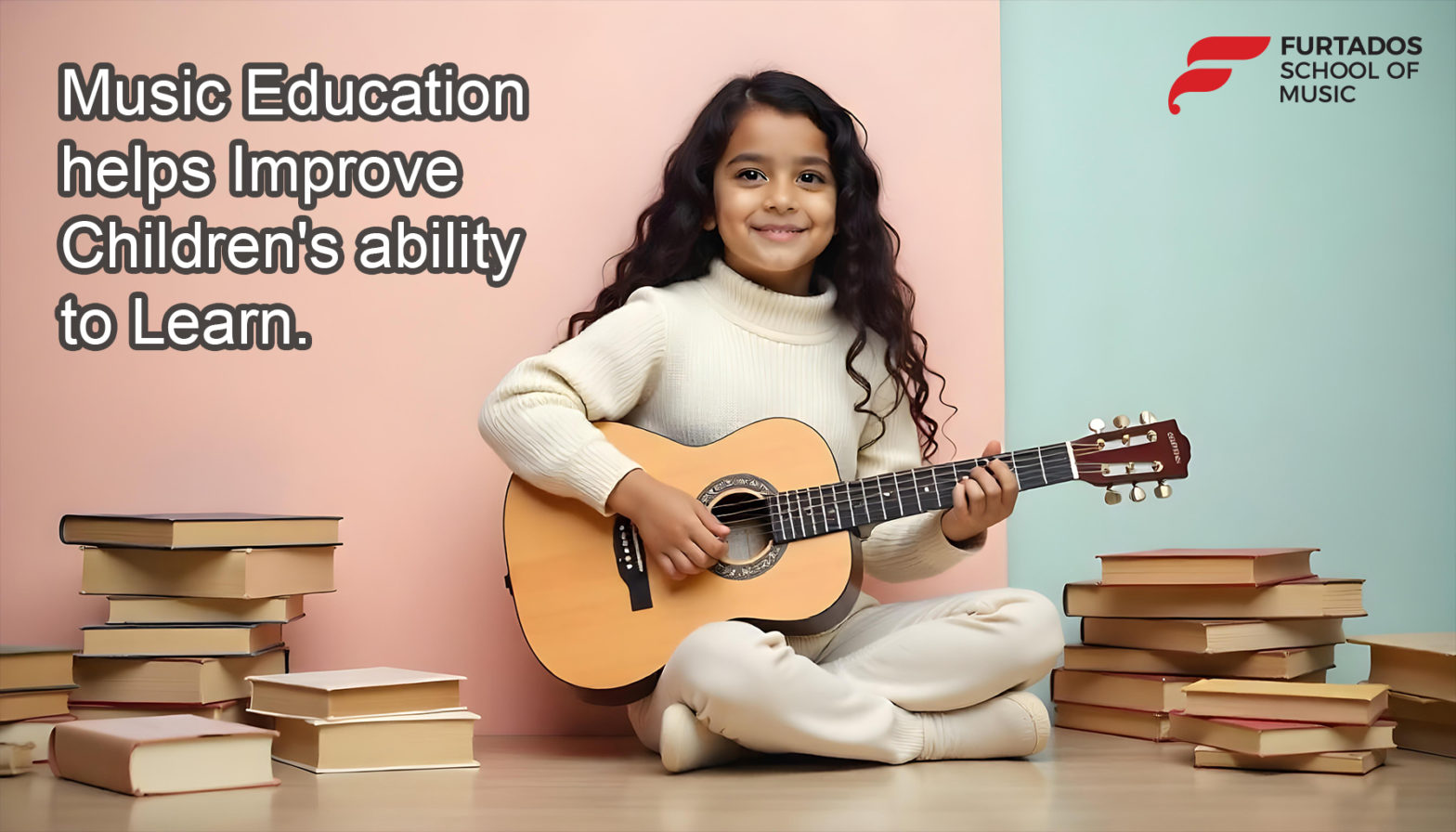Imagine a single activity that could enhance cognitive function, improve memory, accelerate language acquisition, regulate emotions, solve complex problems, and even keep the brain healthy as we age. Now, what if that activity was not only effective but also enjoyable? This transformative activity is Music Educations.
From enhancing the role of music in child development to supporting lifelong cognitive abilities, music education is a powerful tool. This article explores the benefits of music educations for children, particularly its positive effects on brain development, emotional regulation, and social skills.
Music: A Complete Brain Workout
Learning music is one of the most complex cognitive activities the brain can undertake. When children engage in music, multiple areas of the brain work together. The auditory, motor, and visual cortices collaborate rapidly while cognitive, reward, and sensory networks share information. Simultaneously, the perception, emotion, and cognition networks synthesize these inputs, creating meaning.
This complexity trains the brain to handle challenging tasks. After mastering a musical piece, other academic activities such as reading, problem-solving, and conceptualization feel more manageable by comparison.
The Impact of Music on Early Childhood Development
Studies highlight the profound impact of music on early childhood development. Music and language learning share overlapping areas of the brain, meaning exposure to music at an early age aids in decoding and understanding language.
Musically trained children often acquire language faster, develop reading skills earlier, and build better comprehension abilities. These skills form the foundation for academic success.
Moreover, learning music strengthens the prefrontal cortex, the brain region responsible for executive functions like focus, decision-making, and self-regulation. Each time a child picks up an instrument, they exercise this part of the brain, gradually enhancing their ability to manage themselves academically and socially.
Music and Cognitive Development in Children
The music and cognitive development in children’s connection is undeniable. Playing music requires memory, pattern recognition, and multitasking, all of which strengthen critical cognitive processes. For instance, reading musical notes improves pattern recognition, a skill that translates to better mathematical and problem-solving abilities.
Additionally, the discipline of regular practice fosters concentration and perseverance, qualities that benefit children beyond the music room.
Developing Social and Emotional Skills
Music education also plays a vital role in cultivating social and emotional intelligence. Collaborative activities like playing in a group or singing in a choir teach teamwork, active listening, and empathy. These nonverbal social skills help children navigate interpersonal relationships, preparing them for future academic and professional environments.
Furthermore, performing music in front of an audience builds confidence and resilience. Children learn to overcome stage fright and express themselves, boosting their self-esteem and communication abilities.
Encouraging a Lifelong Love for Learning
Music educations isn’t solely about producing professional musicians. Its primary goal is to provide children with the cognitive and emotional tools to become confident learners. By engaging in music, children develop skills that enhance their overall ability to learn, empowering them to excel in any field they choose.
eyond its practical benefits, music brings immense joy and fulfillment. The love for this art form enriches children’s lives, making learning a positive and enjoyable experience.
Conclusion
The role of music in child development extends far beyond entertainment. The benefits of music education for children include enhanced cognitive abilities, stronger social skills, and improved emotional well-being. The impact of music on early childhood development is profound, fostering better language acquisition, academic performance, and self-regulation.
By integrating music into education, we equip children with the tools to thrive academically, socially, and emotionally. With its proven effects on music and cognitive development in children, music education is not just an extracurricular activity—it’s a cornerstone of holistic child development.
Incorporating music into your child’s life is an investment in their growth, confidence, and happiness, ensuring they have the foundation to succeed in school and beyond.
